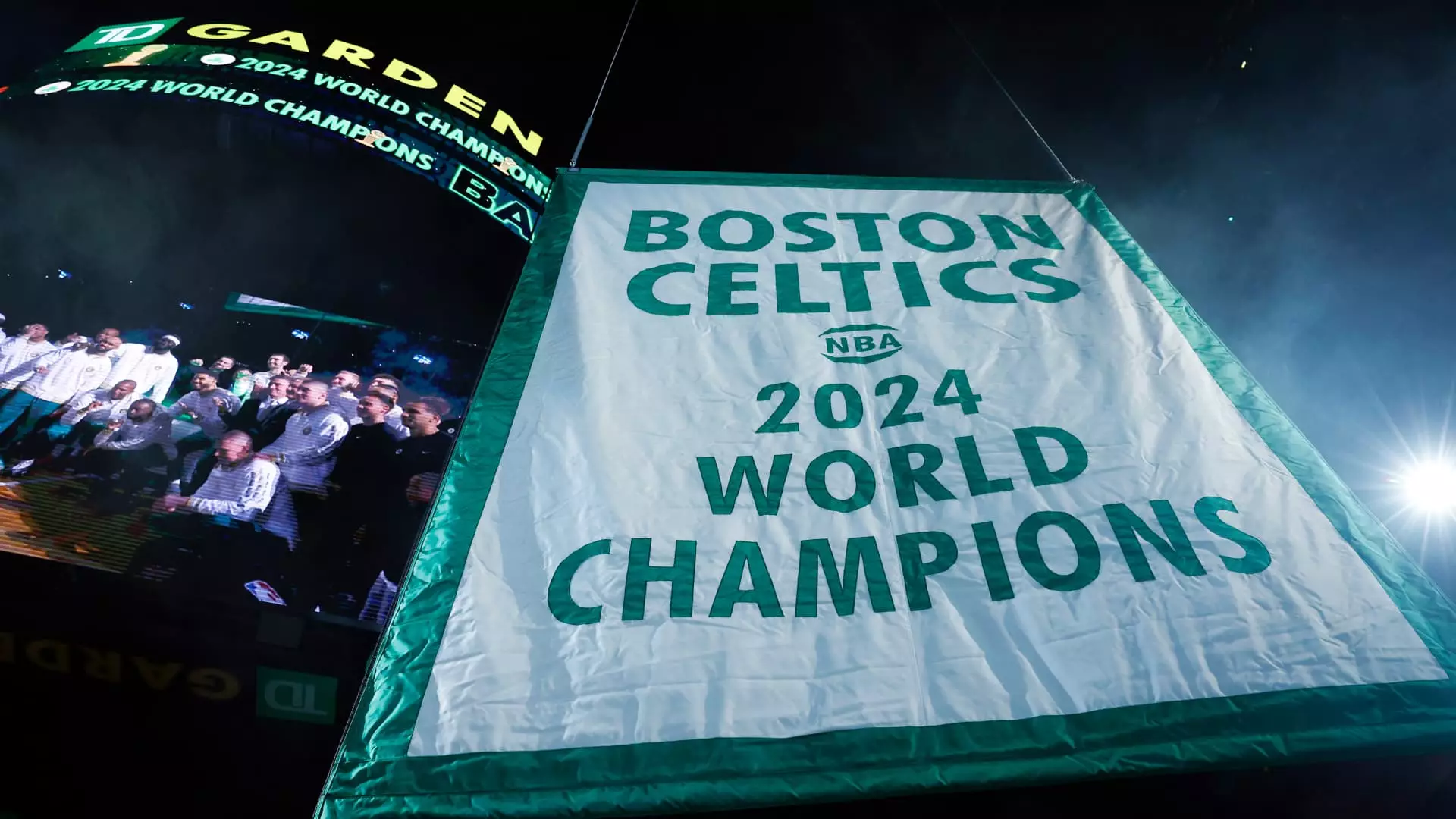In a groundbreaking deal that has sent shockwaves through the sports world, private equity executive Bill Chisholm’s group is set to acquire the Boston Celtics for a staggering valuation of $6.1 billion, marking the highest price ever paid for a sports team in the United States. This sale underscores not only the escalating financial trends in sports franchises but also the shifting dynamics of ownership in professional sports. The investment group, which includes other substantial players like private equity firm Sixth Street and Boston businessman Rob Hale, isn’t just buying a team; they’re embracing a cultural icon steeped in the fabric of Boston itself.
The significant price tag attached to the Celtics is a reflection of broader economic trends affecting sports franchises. As valuations skyrocket, it’s becoming increasingly unlikely for individuals or families to take ownership of teams. The infusion of private equity into sports ownership signals a dramatic shift. It also opens the discussion on the viability and sustainability of significant investment from entities not traditionally associated with the realm of sports. One might ask: Is this a healthy evolution for the sports industry, or does it signify a disconcerting trend where financial prowess overshadows genuine passion for the game?
A Fan First, A Businessman Second
For Bill Chisholm, this isn’t just an investment; it’s a childhood dream actualized. His passion for the Celtics, having grown up in the North Shore and attended college in New England, indicates a level of dedication that goes beyond mere dollars and cents. He recognizes the unique responsibility that comes with leading one of the most storied franchises in NBA history. Yet, one must ponder whether such a transition—moving from a die-hard fan to a corporate leader—might dilute the essence of what it means to be a part of the Celtics community.
Chisholm has openly stated that he understands the Celtics’ role in Boston, emphasizing that the team’s influence extends beyond the basketball court. This sentiment is crucial, especially given the historical significance of the Celtics, who have won 18 championships, marking them as a symbol of excellence in the franchise landscape. However, can a businessman maintain the ethos of a franchise while navigating the complexities of high-stakes finances? History provides mixed narratives of successful transitions, often hinging on the stewardship of the outgoing regime.
The Role of Private Equity in Modern Sports
With the NBA’s acceptance of private equity into team ownership, the landscape has shifted dramatically. The soaring media rights payments—most notably the recent 11-year, $76 billion agreement with giants like Disney and Amazon—set the stage for team valuations to surge. As financial resources are endlessly poured into sports, we must ask ourselves: Is the love of the game being overshadowed by financial gain? While private equity brings in substantial capital, the potential sidelining of community interests and local loyalties becomes a real concern.
The Celtics were previously valued at about $5.5 billion, and now with this sale, we’ve witnessed a meteoric rise that eclipses previous records. This moment in the sports world highlights a troubling reality: the commercialization of what was once viewed as a sporting endeavor is transforming it into a high-stakes financial arena. The allure of being a sports team owner is becoming less about team loyalty and more about leveraging sports for financial return on investment.
Is History Repeating Itself? The Legacy of the Celtics
The Celtics aren’t just basketball players; they’re legends. With the best record in the Eastern Conference and aspirations for a second consecutive title, the culture of winning can be both a blessing and a curse for new ownership. The pressure to maintain success against the backdrop of an increasingly competitive NBA is immense. As the franchise prepares for this substantial transition, one wonders whether the new ownership can rise to the occasion or will succumb to the pressures of the relentless market.
Wyc Grousbeck, the current CEO and governor who will stay on through the 2027-2028 season, will play a pivotal role in this transition. His sentiments that Bill Chisholm is a “natural choice” reflect an understanding of the leadership needed to continue the Celtics’ legacy. However, the reality remains that in this complex web of connecting sport, community, and ownership, the new executives must honor the past while innovating for the future. This delicate balance will be crucial in a world where sporting legacies are at risk of becoming mere business ventures.

